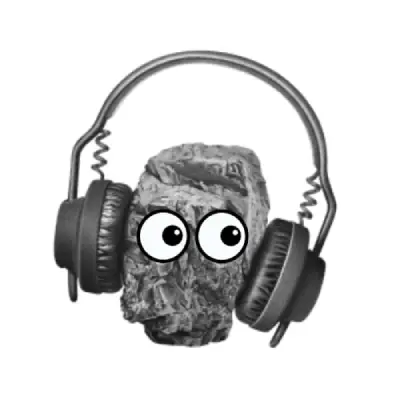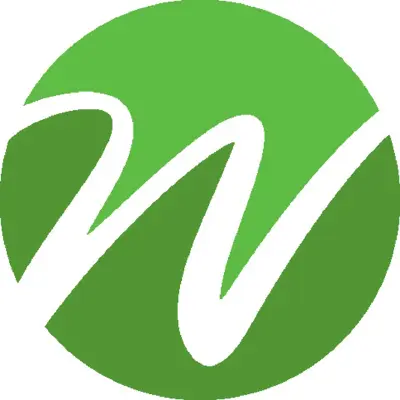Podcasts about Education
Episodes about Education
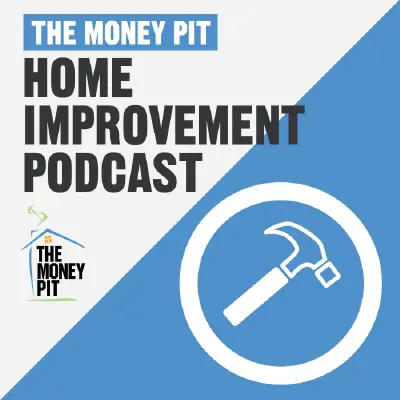
Jul 14, 2025
#2535 – Cool Tips to Beat the Heat | Pool Pros & Cons | Vacation Safety | Smart Roofing | Grill Care
The Money Pit Home Improvement Podcast ❭
SHOW NOTES:
This hour, we'll tackle a variety of common homeowner issues and share valuable advice to keep your home comfortable, safe, and looking its best. Here are some of the main topics we covered, along with the specific home projects our callers are working on:
- Cool Tips for Heat Wave Home Comfort: We share several strategies to help your home stay cool during a heat wave without escalating energy bills.
- Backyard Pool Considerations: We weigh the pros and cons of installing a pool, noting that while pools offer entertainment and can add value in hot climates, they come with significant initial costs and ongoing maintenance expenses.
- Home Safety While Traveling: We offer essential tips to keep your home safe while on vacation, emphasizing making it appear occupied.
- Smart Roofing Upgrades for Cooling: We discuss how your roof impacts your home's temperature and energy bills, highlighting cool roof designs
that reflect more sunlight and absorb less heat.
- Grill Cleaning & Maintenance: We’ve got practical tips on cleaning and
maintaining your grill to ensure better flavor, extend its lifespan, and provide a safer cooking experience.
Q & A:
- Allison from New York needs advice on humanely trapping a squirrel running between her drop ceiling and basement.
- Gary calls about a stubborn barbecue grease stain on the deck that household soap couldn't remove. We suggest using a commercial deck cleaner or stain stripper.
- Nancy from Arkansas asks for the best way to remove cobwebs and clean her mom's popcorn ceiling.
- John from Missouri is puzzled why his pressure-treated wood is rotting within two years despite being sealed with a solid stain.
- Judy from Minnesota observed moisture halfway down the paneling in her 40-year-old home, suspecting condensation and the need to reduce humidity.
- Earl called about buckling vinyl siding, likely due to being installed too tightly. Doing so prevented proper expansion and contraction, or not enough “breathing room.”
- Robin from New Jersey says her ceiling fan light comes on by itself at weird times. Flickering lights often indicate a loose wire or short circuit, and we recommend calling an electrician for investigation.
ASK A QUESTION:
Need help with your own home improvement or décor question? We’d love to help! Call the show 24/7 at 888-MONEY-PIT (888-666-3974) or post your question here: https://www.moneypit.com/ask.
Learn more about your ad choices. Visit podcastchoices.com/adchoices
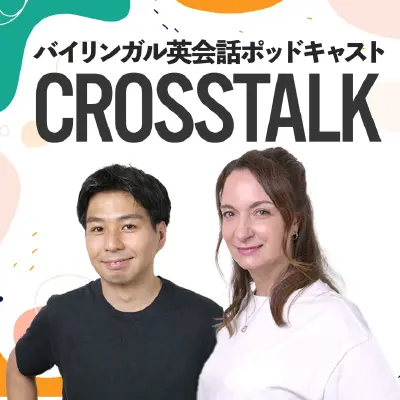
「アメリカ人は肩こりしない」って本当?突然襲った激しい肩の痛みをきっかけに、日本人とアメリカ人の体の不調への向き合い方の違いが明らかに!湿布、銭湯、鍼治療...日本の自然療法 vs アメリカの化学薬品。そして謎の万能薬「タイガーバーム」とは一体何者?「日本人だけが肩こりになる」という都市伝説の真相を、リアルな体験談と文化比較でトモヤとアンドリアが徹底検証。
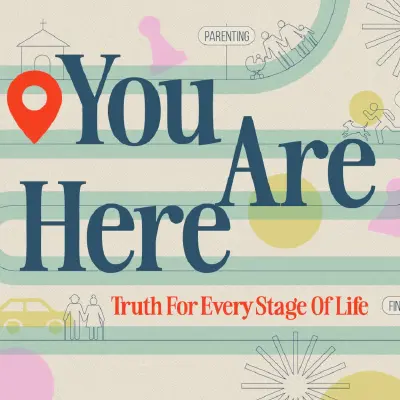
Jul 13, 2025
YOU ARE HERE: Dating and the Gospel- Pastor Jim Dahlke
Woodside Bible Church Lake Orion ❭
How do you discern if a person is a good gospel partner? Join us in Ephesians 5:22-33 to get into it!
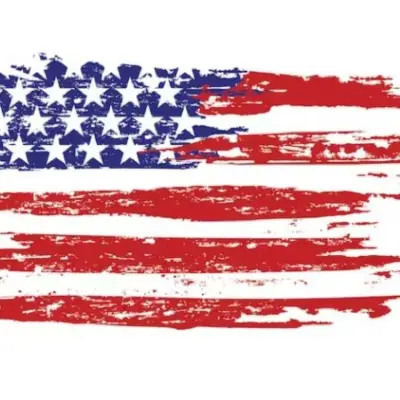
Jul 13, 2025
Happy Birthday America - Day 13 of Facts About the Founding of Our Country!
During the Break with Clint Powell ❭
Happy Birthday America - Day 13 of Facts About the Founding of Our Country!
THANK YOU TO OUR SPONSORS:
Nutrition World: https://nutritionw.com/
Vascular Institute of Chattanooga: https://www.vascularinstituteofchattanooga.com/
The Barn Nursery: https://www.barnnursery.com/
Optimize U Chattanooga: https://optimizeunow.com/chattanooga/
Guardian Investment Advisors: https://giaplantoday.com/
Alchemy Medspa and Wellness Center: http://www.alchemychattanooga.com/
Our House Studio: https://ourhousestudiosinc.com/
ALL THINGS JEFF STYLES: www.thejeffstyles.com
PART OF THE NOOGA PODCAST NETWORK: www.noogapodcasts.com
Please consider leaving us a review on Apple and giving us a share to your friends!
This podcast is powered by ZenCast.fm
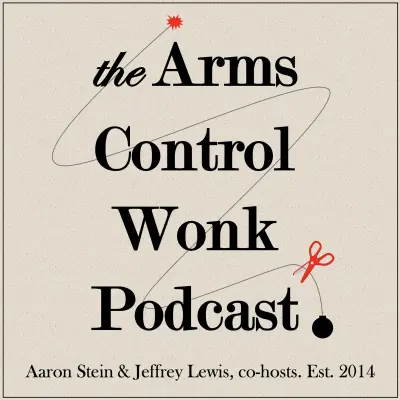
Aaron and Jeffrey finally deconflict their schedules to talk about the outcome of the Israeli-Iranian war, Iran’s pathway back to the bomb, and why they’re both irritated with the “fix it or nix it crowd.” Support us over at Patreon.com/acwpodcast!
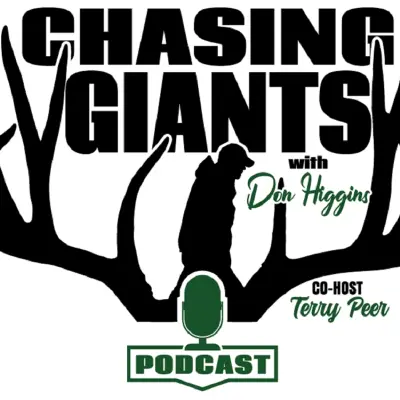
Jul 13, 2025
Episode #281 - How Don Tracks Giant Bucks Years in Advance
Chasing Giants with Don Higgins ❭
Don Higgins and Terry Peer are back with a packed episode of the Chasing Giants Podcast, diving deep into trail camera strategy, food plot updates, listener questions, and some wild woods stories you won’t believe.
🦌 Topics This Week:
Don’s July 4th trail camera deployment strategy
Tracking a buck across 4.5 miles and multiple years
Don’s tiers of camera locations: Bachelor Groups, Strategic Monitoring, and Exploratory Placement
Food plot updates — what’s working in the drought and how herbicide programs saved the season
Funny trail cam encounters — including a Christmas Day turnip theft and a legendary woods story
Listener Q&A on deer movement, food plot weed control, and managing doe populations
The truth about managing genetics — and a teaser for next week’s deep dive on how Don’s long-term strategies have altered the buck genetics on his farm
📸 Trail Cam Tip of the Week: Use every summer picture as a data point — even if the buck’s not a shooter yet!
🎯 Listener Questions Sponsored by: Midwest Land Group
🦾 Blind Sponsor: 360 Hunting Blinds – Check out the Chasing Giants Edition Blind
▶️ Subscribe and turn on notifications — Season is almost here and these strategies are dialed in!
Our sponsors for Chasing Giants TV include: -
Asio Camo Gear - www.asiogear.com -
Midwest Land Group - www.midwestlandgroup.com -
Mike's Mighty Micros - www.mikesmightymicros.com -
Victory Auto Group - www.victorykc.com -
360 Hunting Blinds - www.360huntingblinds.com -
Real World Wildlife Products - www.realworldwildlifeproducts.com -
Mathews Archery - www.mathewsinc.com -
Gingerich Tree Farms - www.gingerichtreefarm.com -
Brenton USA - www.brentonusa.com -
Vortex Optics - www.vortexoptics.com
Any reproduction of this content without the written permission of Chasing Giants TV LLC is strictly prohibited.
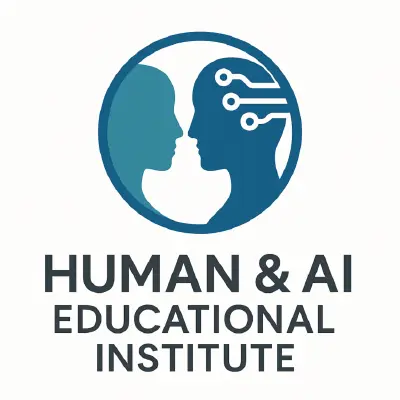
This powerful episode takes listeners on a journey through the soul of Iran—its rich ethnic diversity, profound spiritual history, breathtaking artistry, and the luminous future foreseen in the Bahá’í Writings. Blending historical depth with visionary hope, this podcast offers scholars, educators, and seekers a thoughtful exploration of a country long seen as both cradle and crucible of civilization. Curated for global audiences in partnership with the Human-AI Educational Institute.
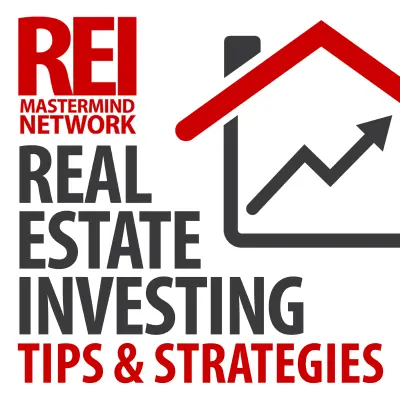
Jul 12, 2025
5 Costly Mistakes in Real Estate Investing (And Fixes!) w/ Ian Drewe
Real Estate Investing with the REI Mastermind Network ❭
Discover the 5 costly mistakes in real estate investing and how to avoid them! Learn from Ian Drewe, a seasoned real estate investor and multifamily expert, as he shares his journey from Australia to becoming a prominent name in U.S. real estate. From navigating multifamily assets to building an investment portfolio, Ian provides actionable strategies, lessons learned, and proven real estate investment strategies to help you create generational wealth.🚀 What You’ll Learn in This Episode:Common pitfalls in real estate investing and how to fix them.The importance of strategic renovations and building strong investor relationships.How data, technology, and AI are transforming deal sourcing and underwriting.Insights into multifamily properties, Section 8 housing, and the current market trends.Tips to grow and scale your investment portfolio while staying focused on the fundamentals.👥 Connect with Ian Drewe! Visit https://avocaproperty.com/ for more about his multifamily investment strategies and how his team is creating opportunities in Texas, Florida, Oklahoma, and South Carolina.🎧 Subscribe to the REI Mastermind Network PODCAST! Don’t miss out on Ian's incredible insights and other expert advice to take your real estate investing game to the next level.💡 "Relationships are everything. Maintain strong connections with your investors, and success will follow." – Ian Drew🔥 Support the show by sharing this episode with your investor friends, liking the video, and subscribing to the channel. Your engagement helps us bring you more transformative stories and expert advice!Unlock the secrets to building wealth through real estate investing. Hit that subscribe button and join a community dedicated to creating generational wealth through smart investment strategies!#realestaterookie #housingmarket #duediligence #multifamilydemand #interestratesCHAPTERS:00:00 - Intro00:16 - Real Estate Journey02:52 - Current Focus in Real Estate04:57 - Emerging Trends in Real Estate08:00 - Data and Technology in Business12:12 - Jackson Place Overview17:49 - Avoiding Digital Marketing Pitfalls19:11 - Choosing the Right Mastermind Group20:14 - Understanding Bait and Switch Tactics23:21 - Future Plans for Ian25:45 - Missed Topics of Discussion26:18 - Personal Lies and Self-Reflection26:36 - Advice to Younger Self26:54 - Recommended Reading27:18 - Time-Saving Tools in Real EstateRealDealCrew.comWe empower real estate investors by optimizing your business processes through customized automation and system integration. From lead management to deal closure, we help you build a scalable and efficient operation. Learn more at RealDealCrew.comLIKE • SHARE • JOIN • REVIEWWebsiteApple PodcastsYouTubeYouTube Music
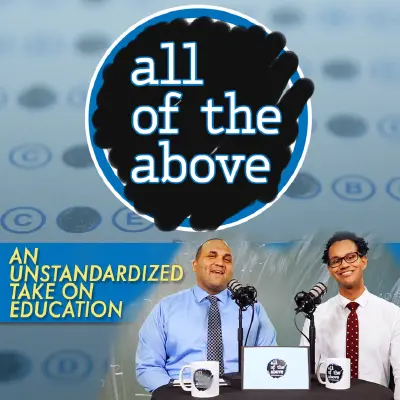
Jul 12, 2025
Adulting 101, and do Experienced Teachers Continue to Get Better?
All of the Above Podcast ❭
This Week: Sometimes research tells us something new, and sometimes it confirms what we thought we already knew. A new study from the Fordham Institute does both, showing that contrary to some popular lines of thinking, experienced teachers do in fact continue to improve their practice well into their 2nd decade of teaching. We also dive into a fascinating story about a teacher in Michigan who is teaching Adulting 101 and 102 to her students. The popular electives take on everything from personal budget and taxes, to tying a tie, to personal relationships and conflict. And this week we try to contain the updates on fascist policy violence coming out of DC to a Fascist Five: Trump withholds $6.2B in K-12 education funding, including more than $800M from CA, Trump moves to ban undocumented students from attending Head Start preschool programs, and Trump takes a temporary L as a federal judge puts a restraining order on the attempt to end birthright citizenship. Manuel and Jeff discuss. MAXIMUM WOKENESS ALERT -- get your All of the Above swag, including your own “Teach the Truth” shirt! In this moment of relentless attacks on teaching truth in the classroom, we got you covered. https://all-of-the-above-store.creator-spring.com Watch, listen and subscribe to make sure you don't miss our latest content!Listen on Apple Podcast and Spotify Website: https://AOTAshow.comStream all of our content at: linktr.ee/AOTA Watch at: YouTube.com/AlloftheAboveFollow us at: LinkedIn, Facebook.com/AOTAshow, Twitter.com/AOTAshow
